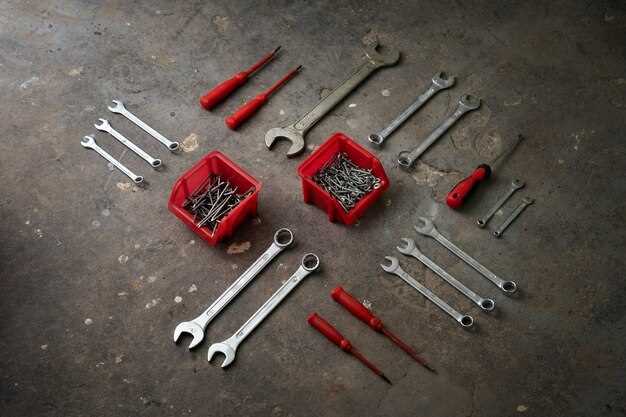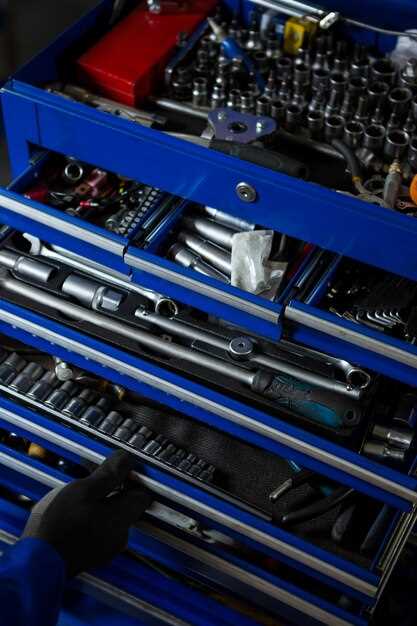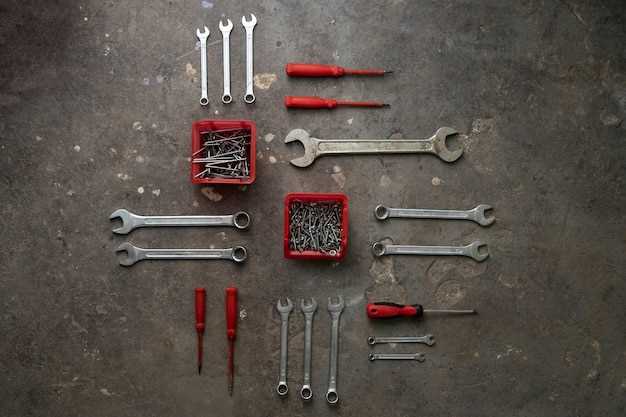
In the world of diesel mechanics, having the right equipment is essential for ensuring efficient and effective repair operations. Unlike standard automotive mechanics, diesel mechanics often work with heavy machinery, requiring specialized tools that can handle larger components and more rigorous tasks. The right set of tools not only enhances productivity but also minimizes the risk of injury and equipment damage in the shop.
This article explores the essential tools every diesel mechanic should have in their arsenal. From basic hand tools to advanced diagnostic equipment, we will highlight the items that are indispensable for performing high-quality repairs on diesel engines. Whether you are a seasoned professional or just starting your career in a diesel repair shop, understanding which tools are must-haves can significantly impact your efficiency and effectiveness on the job.
Investing in quality tools not only pays off in terms of performance but also helps in maintaining a safe and organized working environment. As we delve into this topic, we will discuss various categories of tools, their specific uses, and how they contribute to the overall success of diesel mechanics in handling complex repairs. Let’s get started and equip you with the knowledge you need to enhance your diesel repair skills.
Top Diagnostic Tools for Heavy Equipment Maintenance

In any diesel mechanic shop, having the right diagnostic tools is crucial for ensuring the longevity and efficiency of heavy equipment. These tools enable mechanics to quickly identify issues, reduce downtime, and enhance overall productivity. Here are some essential diagnostic tools that every diesel mechanic should consider integrating into their maintenance routine.
1. Engine Diagnostic Scanners: Engine diagnostic scanners are one of the most vital tools for heavy equipment maintenance. These handheld devices connect to the equipment’s onboard computer systems, allowing mechanics to read trouble codes, monitor real-time data, and perform component tests. A reliable scanner can significantly streamline the troubleshooting process.
2. Multimeters: A good multimeter is indispensable for any diesel mechanic. This tool measures voltage, current, and resistance, helping technicians diagnose electrical issues in heavy machinery. Whether checking battery health or testing sensors, a multimeter provides precise readings that are essential for effective maintenance.
3. Pressure Gauges: Pressure gauges are critical for assessing the performance of hydraulic systems in heavy equipment. These tools measure fluid pressure, allowing mechanics to ensure that all components are functioning within specified parameters. Observing pressure levels can help detect leaks and system failures early on.
4. Oscilloscopes: An oscilloscope is a powerful diagnostic tool used to visualize electrical signals. It is particularly useful for troubleshooting complex electrical problems where standard diagnostic tools may fall short. By examining waveforms, mechanics can identify faults in sensors, actuators, and other electrical components.
5. Diagnostic Software: In the age of technology, having advanced diagnostic software tailored for heavy equipment is a game changer. This software often comes with databases of known issues, repair solutions, and manufacturer specifications. Mechanics can use these tools to analyze data from multiple sensors and systems simultaneously, leading to more informed decisions.
6. Thermal Imaging Cameras: Thermal imaging cameras are innovative tools that help mechanics spot overheating components, insulation failures, and other temperature-related issues. By visualizing thermal differences, these cameras provide a non-invasive method to detect problems that are not visible to the naked eye.
Investing in high-quality diagnostic tools is essential for any shop specializing in heavy equipment maintenance. The right equipment not only enhances the ability to diagnose and resolve issues effectively but also promotes a safer and more efficient working environment.
Essential Hand Tools for Diesel Engine Repairs
When it comes to diesel engine repairs, having the right tools is crucial for effective and efficient work. Heavy-duty hand tools play a significant role in ensuring that mechanics can perform repairs with precision and ease. Here are some essential hand tools every diesel mechanic should have in their toolkit.
Wrenches: A comprehensive set of wrenches, including both standard and metric sizes, is vital. This set should include adjustable wrenches, socket wrenches, and torque wrenches to handle various fasteners and to ensure proper torque specifications during repairs.
Screwdrivers: A variety of screwdrivers, including flat-head and Phillips, in different lengths and sizes, are essential for accessing various components and removing covers or panels in diesel engines.
Pliers: Needlenose pliers, slip-joint pliers, and locking pliers are invaluable for gripping, twisting, or cutting wire and other materials. They provide the heavy grip and control necessary to manipulate components during repairs.
Hammer: A durable hammer is necessary for tasks that require force, such as loosening stubborn parts or driving pins and dowels. A ball-peen hammer is especially useful in diesel engine work.
Pry Bars: These tools are essential for separating parts or components that may be stuck together. They provide significant leverage and can handle the heavy demands of diesel engine assembly and disassembly.
Diagnostic Tools: While not traditional hand tools, having basic diagnostic instruments like multimeters and test lights can help troubleshoot electrical issues within diesel engines, ensuring that repairs can be made efficiently.
Equipping yourself with these essential hand tools will enhance your ability to perform effective diesel engine repairs, ultimately leading to increased productivity and better results in your work.
Key Safety Gear for Diesel Mechanics During Heavy Repairs

When performing heavy repairs in a diesel mechanic shop, ensuring safety is paramount. Diesel mechanics are frequently exposed to hazardous environments, so wearing appropriate safety gear is essential to prevent injuries and accidents. Here are the key safety items that every diesel mechanic should have on hand during heavy repairs.
First and foremost, personal protective equipment (PPE) includes safety glasses or goggles. These protect the eyes from flying debris, chemicals, and other particulates that can result from the extensive repair processes. It’s crucial to always have a clear line of sight while using various tools.
Next, hearing protection is vital due to the loud noises often produced by diesel engines and power tools. Earplugs or earmuffs can significantly reduce the risk of hearing loss over time, making them a must-have in the shop.
Steel-toed boots are another essential piece of safety gear. These boots not only provide comfort during long hours of work but also protect the feet from heavy equipment and tools that may fall or roll. Choosing boots with slip-resistant soles further enhances safety, preventing slips and falls in the shop.
A durable work glove is also important for a mechanic’s protection. Gloves made from cut-resistant materials safeguard hands from sharp edges, hot surfaces, and chemical exposure. It’s crucial that gloves still allow for dexterity when handling small tools and components.
Additionally, respirators or face masks are necessary when working with exhaust fumes or any hazardous materials. Ensuring that air quality is safe and breathable reduces the risk of respiratory issues for mechanics working in confined spaces.
Finally, knee pads can provide added comfort and protection when mechanics are kneeling during repairs. This gear can prevent knee injuries and fatigue, allowing for longer and safer work sessions.
In conclusion, prioritizing safety gear is essential for diesel mechanics during heavy repairs. By equipping themselves with the right tools and safety equipment, mechanics can protect their well-being and focus on delivering high-quality repair work.




